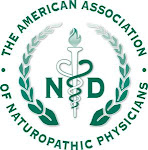
Photo by taberandrew via Flickr, used under the Creative Commons License.
Ah, research. The bastion of Truth, the harbinger of new therapies, the gospel according to NCCAM, the Holy Grail of healthcare. Our research departments are at the heart of every medical center, pumping veracity through the veins of academia and bringing lifeblood to the marketing agencies.
But wait just one evidence-based minute. This particular journalist was actually a researcher for a few short years, a certified NCCAM principal investigator probing the effects of hippotherapy (physical therapy on horseback) on children with spastic cerebral palsy, resulting in two publications in peer-reviewed journals. And I am figuratively here to tell you that our collective, integrative research data is not holy, but in fact full of holes. Despite our truest of intentions, my fellow investigators and I walked into the studies brimming with bias (children and animals, for gosh sakes), and emerged no less partisan given our positive results. This does not mean the therapy did not benefit the kids; it simply means we found benefit despite our blinkered perspective.
Now please don’t get me wrong – as imperfect as it is, research is still one of our best tools in determining what arrows to place in our therapeutic quiver. But its conclusions are not the Truth, but simply one more finger pointing in the general direction of the Truth. And to help you, the clinician, to comprehend our particularly pedagogical dialect within the covers of your favorite journal, I have compiled a list of commonly utilized research phrases along with their more accessible vernacular to help in translating the next study you peruse in your living or other room. Plus, as an extra bonus and in the spirit of journalistic integrity, I am going to openly admit that I have plagiarized the following from an anonymous source within the pages of my monthly Funny Times subscription.
So without further ado, here is a translation of common academic phrases into plain old English:
- “It has long been known” . . . I didn’t look up the original reference.
- “A definite trend is evident” . . . These data are practically meaningless.
- “While it has not been possible to provide definite answers to the questions” . . . An unsuccessful experiment but I still hope to get it published.
- “Three of the samples were chosen for detailed study” . . . The other results didn’t make any sense.
- “Typical results are shown” . . . This is the prettiest graph.
- “These results will be in a subsequent report” . . . I might get around to this sometime, if pushed/funded.
- “In my experience” . . . Once.
- “In case after case” . . . Twice.
- “In a series of cases” . . . Thrice.
- “It is believed that” . . . I think.
- “It is generally believed that” . . . A couple of others think so, too.
- “Correct within an order of magnitude” . . . Wrong. Wrong. Wrong.
- “According to statistical analysis” . . . Rumor has it.
- “A statistically oriented projection of the significance of these findings” . . . A really wild guess.
- “A careful analysis of obtainable data” . . . Three pages of notes were obliterated when I knocked over a beer glass.
- “It is clear that much additional work will be required before a complete understanding of this phenomenon occurs” . . . I don’t understand it, and I never will.
- “After additional study by my colleagues” . . . They don’t understand it either.
- “A highly significant area for exploratory study” . . . A totally useless topic selected by my committee.
- “It is hoped that this study will stimulate further investigation in this field” . . . I am pleased to feed you this B.S., and hope you will give me more funding.
So, future researchers, I hope this thesaurus will assist you in your lofty goal of saving humanity. Go get ‘em!




No comments:
Post a Comment